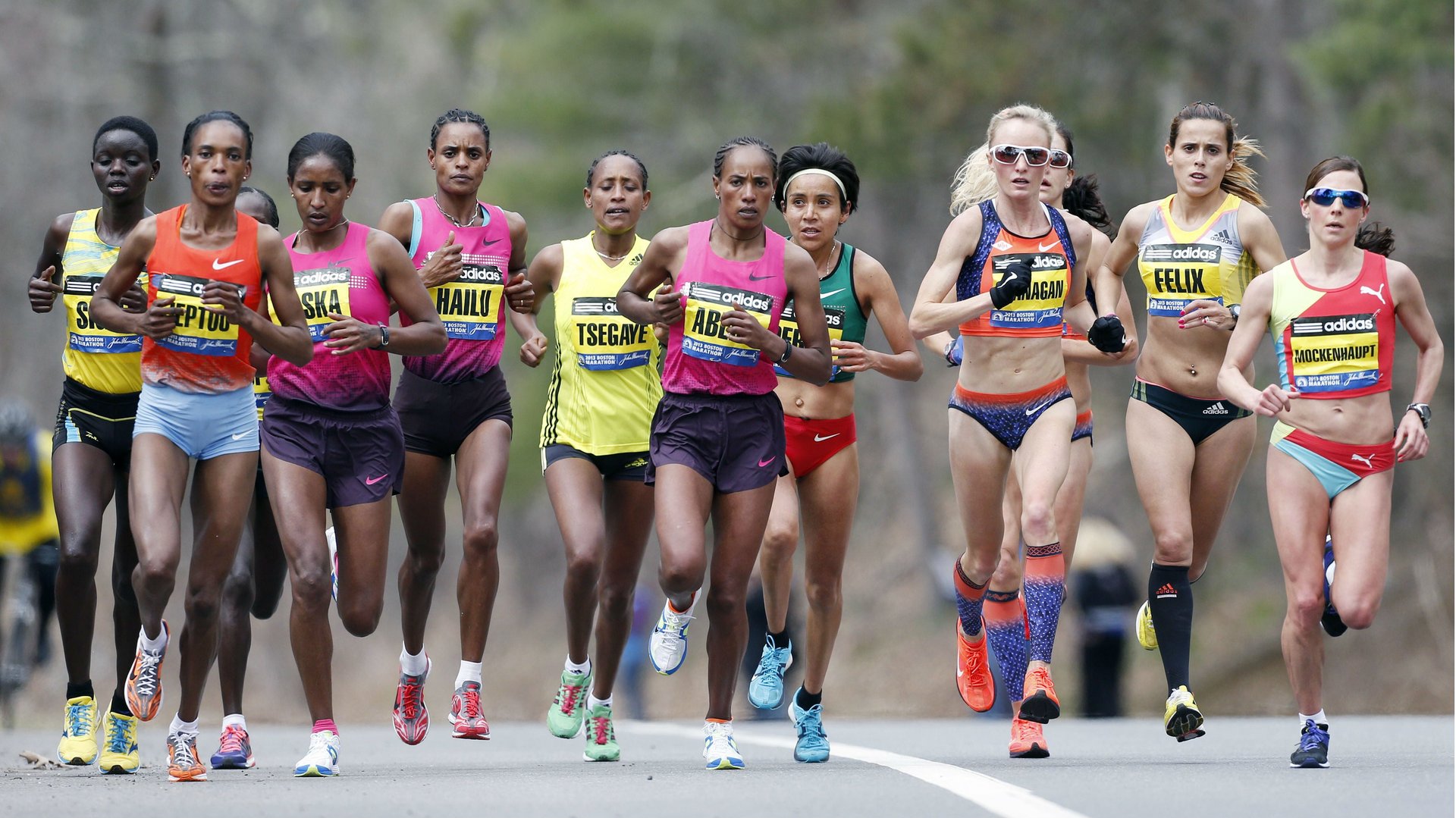Scientists are collecting poop from elite athletes to try to put their endurance into a pill
What if the difference between ultramarathoners and the rest of us is just the tiny things living in their guts?


What if the difference between ultramarathoners and the rest of us is just the tiny things living in their guts?
Jonathan Scheiman, a microbiologist at Harvard Medical School, has been studying the bacteria in the digestive tracts of elite long-distance runners and rowers. He thinks that if he can identify micro-organisms that help elite athletes reach the finish line faster, their powers could one day be harnessed into a probiotic pill.
Scheiman spends a lot of time sifting through athletes’ poop. Much of our fecal matter is bacteria that lives happily with us, and under the microscope, it can paint a pretty clear picture of our lives. Our guts become microbial homes for different groups of bacteria depending on what we eat, where we live, and even who we hang out with. In turn, different gut bacteria help us get nutrients from our food and protect us from pathogens. Scheiman thinks they may even make our muscles better able to exert themselves over long periods of time.
On Aug. 20 at the American Chemical Society’s annual conference in Washington DC, Scheiman presented some of his team’s work. In one, he obtained fecal samples daily from 20 marathon runners participating in the 2015 Boston marathon for a week before and after the race. When he and his team analyzed these samples, they found a large collection of bacteria capable of breaking down lactic acid, a byproduct our muscles produce when they’re working hard and which may contribute to fatigue later on. “So basically, we identified a bug [meaning bacteria] almost as a natural response to exercise that can break down…these metabolites” he said in a press conference.
He and his team also took fecal samples from Olympic rowers and ultramarathoners who are used to running more than the standard 26.2 miles (roughly 42 kilometers). “For [ultra]marathon runners, we see bugs at an elevated level that break down carbohydrates and fibers,” Scheiman said. “If you’re gonna run a hundred miles for a competition, you probably want a microbiome that can help harvest energy from food.” Elite rowers, however, didn’t have the same levels of this species, which he thinks is because their sport requires them to exert a ton of energy for a comparatively short amount of time, whereas ultra runners need to maximize their endurance.
Scheiman thinks that with a little more research, these bacteria could be extracted, replicated, and put in a little probiotic pill to give non-elite athletes. Later this year, he and his team hope to launch a biotech startup to develop such supplements.
But before you can pop a pill to make it through your next run, there’s a lot of research to be done. Scheiman’s work still needs to be published in academic journals where it will be thoroughly scrutinized. And even if these bacteria can be put into a probiotic supplement, the team has yet to prove that the pill works: Despite one recent success story, the field of probiotics has been riddled with inconclusive results about their efficacy.